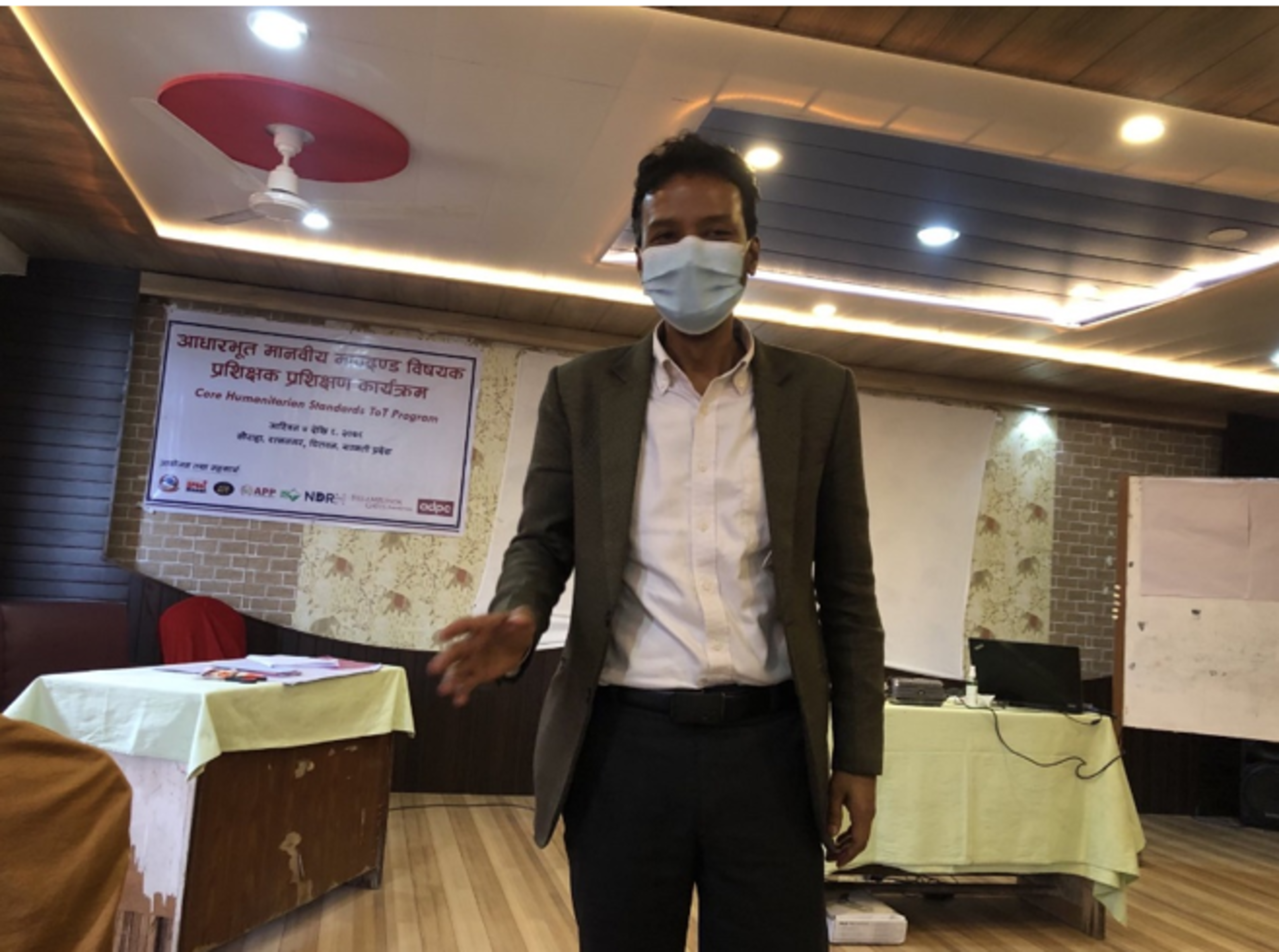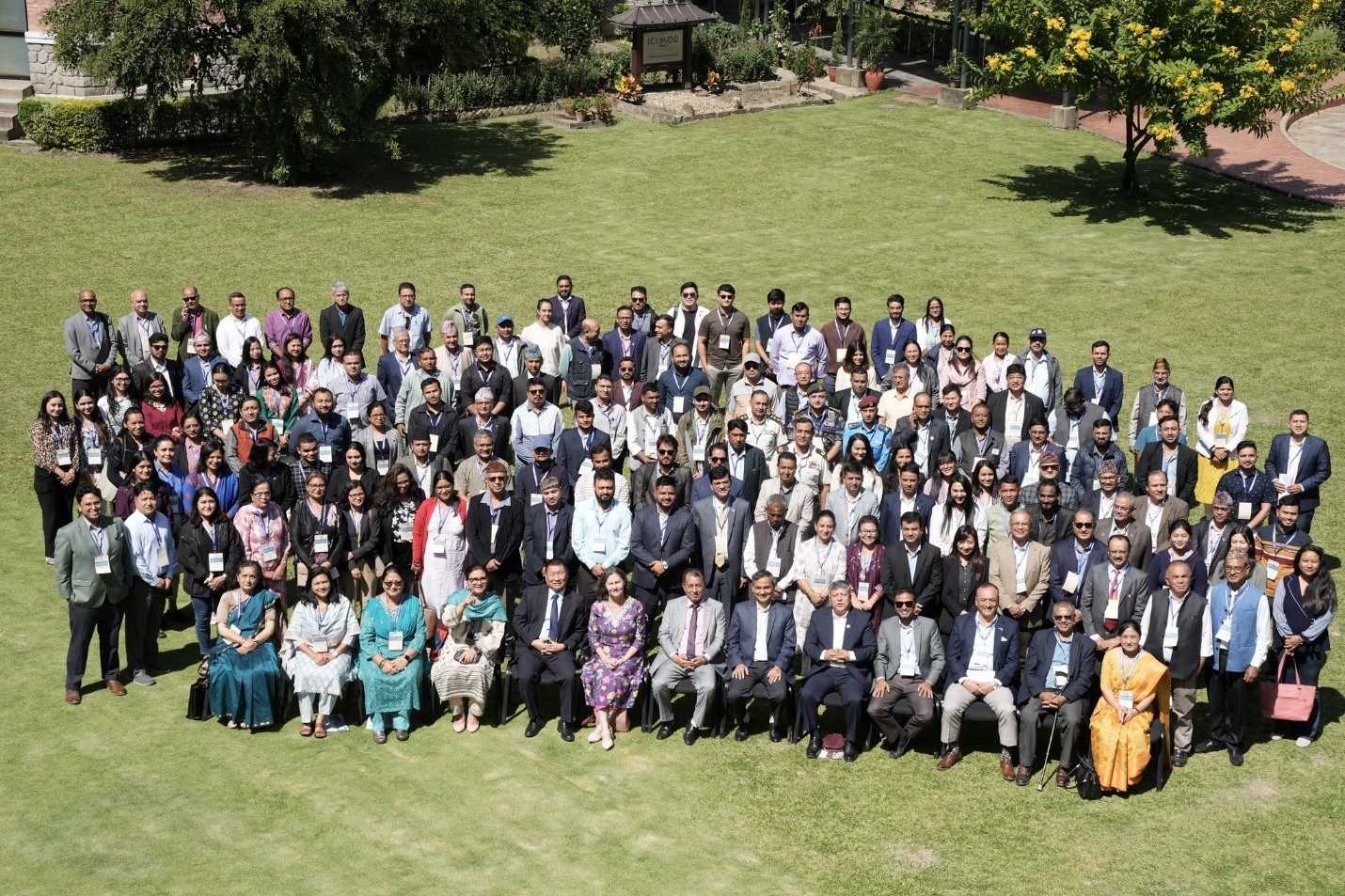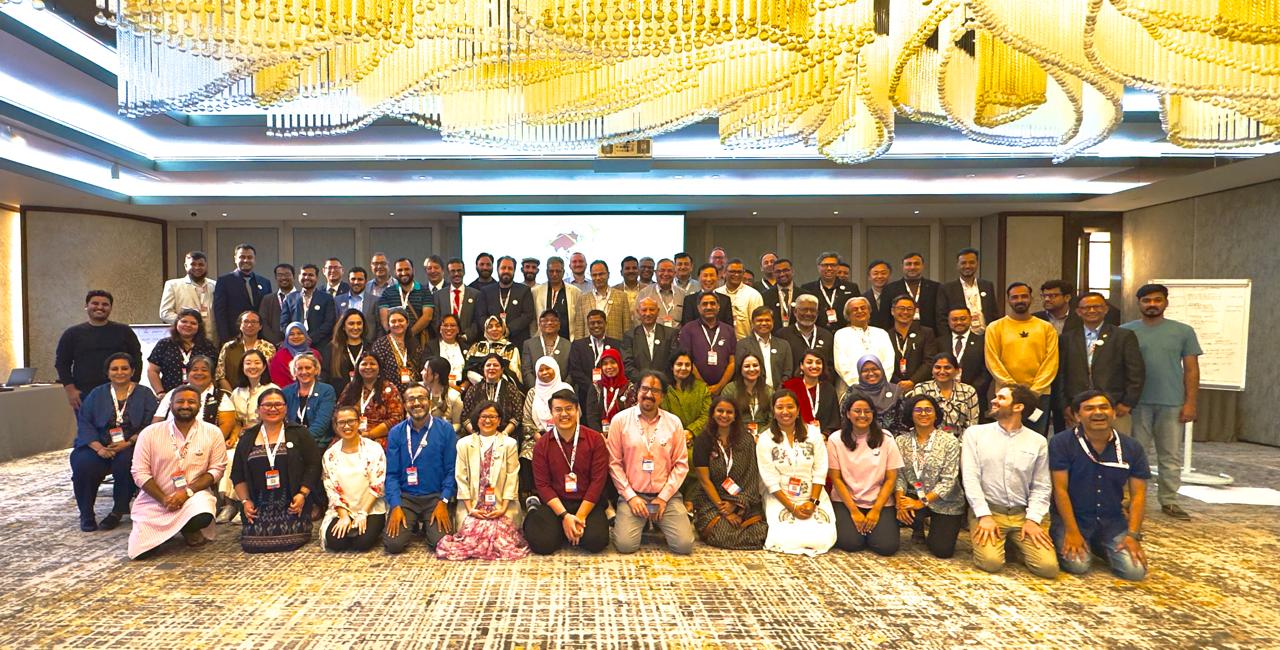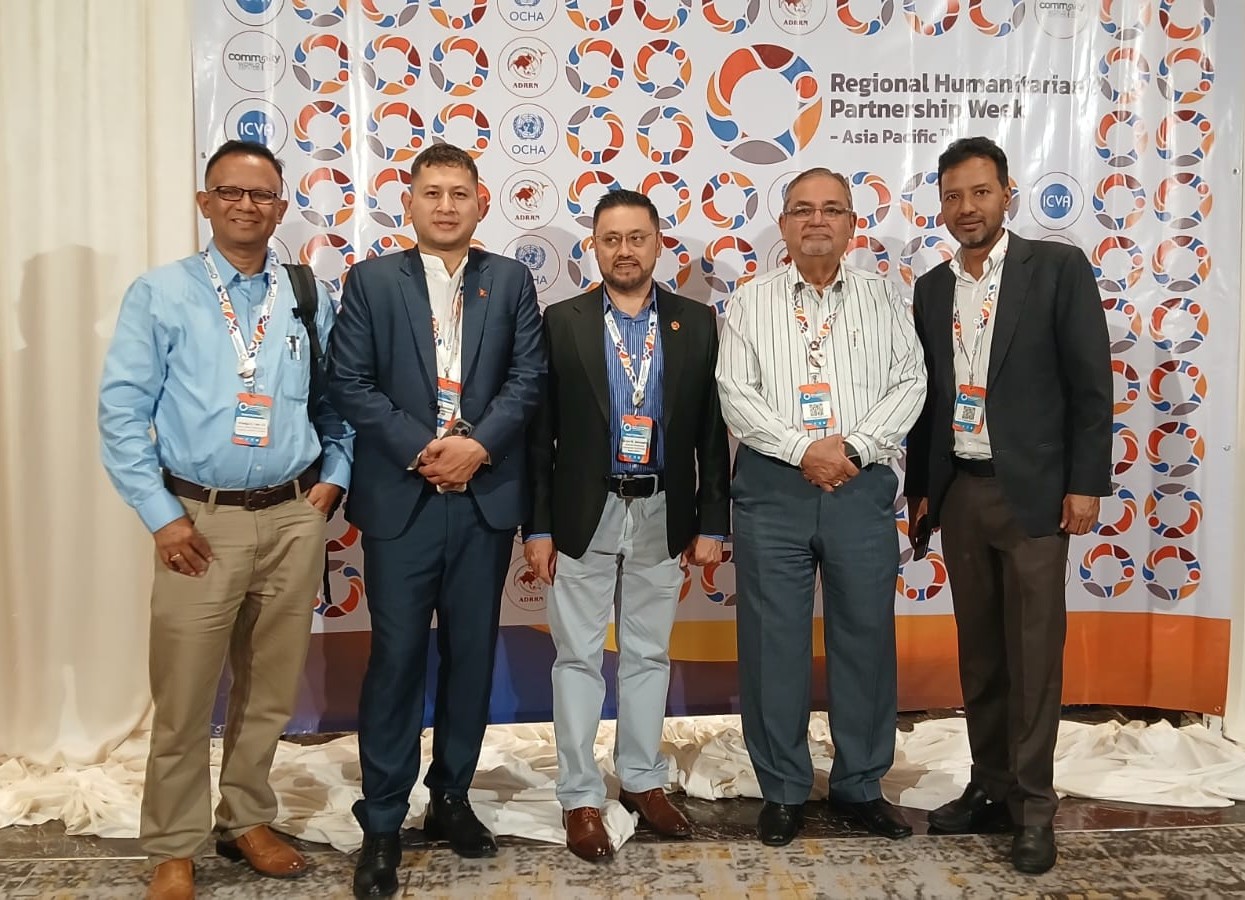National Level Training on Core Humanitarian Standards

Five days long National Level Training on Core Humanitarian Standards (CHS) was organized by Ministry of Home Affairs (MoHA), Disaster Preparedness Network (DPNet); Asian Preparedness Partnership (APP); the Asian Disaster Preparedness Center (ADPC); Bill & Melinda Gates Foundation (the foundation); National Disaster Risk Reduction Centre Nepal (NDRC); and Association of International NGO’s (AIN) in Sauraha, Ratnanagar Municipality, from September 20-24 ,2021. Altogether, 43 (10 women and 33 Men) participants representing the Government; Humanitarian and Private Sector organizations attended the event. The training aims to capacitate local humanitarian champions and disseminate the knowledge and skill to the local humanitarian actors namely, local governments, local humanitarian organizations, and the private sectors.
Major remarks from organizers and guest
Dr. Raju Thapa, General Secretary DPNet Nepal
As a focal point of Sphere Geneva in Nepal, DPNet has been actively engaging on institutionalizing and localizing sphere standard in Nepal conducting various activities. The adherence to sphere standard is the primary step in fulfilling humanitarian principles during emergencies. In support of various stakeholders, DPNet is in the process to prepare adequate human resource to reach out all local level of Nepal to sensitize local Governments. Such training program will help to institutionalize sphere standard in Nepal.
Mrs. Deepa Ghimire Chief Women, Children, and Senior Citizens Section, Ratnanagar Municipality
The most important aspect during emergency relief and response is to maintain optimum coordination and cooperation with all levels of the government and local humanitarian organizations. This supports effective and efficient works to minimize duplications of works and makes everyone accountable.
Mr. Shalik Ram Poudel In-charge in livestock Development Section, Ratnanagar Municipality
Our confusion on the approach and understanding on relief assistance was more inclined towards the charity mindset. With this training, it has become clear to us that every assistance needs to incorporate the humanitarian principle as the affected have the right to life and dignity
Mrs. Sushil Wagle Chief Women, Children, and Senior Citizens Section, Bharatpur Metropolitan City
Local-level disaster response and preparedness plan should be formulated following the guidelines of the Ministry of Federal Affairs and General Administration, while the district and province level plans should be prepared following the guidelines of the Ministry of Home Affairs.
Mr. Krishna Adhikari – RSS Journalist
Humanitarian assistance is driven by principles and standards of humanity. Observance to it will enable timely, need-based assistance to the surviving communities to reduce their suffering and ensure their human value.”
Summary of the discussion in training session:
· Humanitarian perspectives and standards are the cornerstones of every disaster risk management process including relief package/distribution, as everyone has the right to live with dignity.
· Crisis-affected communities are humans and humanitarian assistance to them should be carried out based on impartially, independence, humanity and neutrally to reduce human sufferings.
· Since the people affected by disaster or conflict have the right to receive protection and assistance to ensure the basic condition for life with dignity. Thus it becomes essential for all supporting agencies to respect their right to life with dignity and reduce human sufferings.
· During emergencies, relief assistance should be provided on the basis of the need, aligned with the local and cultural practices of recipients. Relief should be provided on time and respect the dignity of the recipients.
· Safety, dignity, and rights of people, and avoiding exposing them to harm is another prime aspect of humanitarian assistance along with non-discriminatory access to their needs-based requirements.
· The sustainability of development gains is very much dependent upon the application of disaster risk management approaches. Humanitarian standards enable us to safeguard rights of the afflicted and needy population in disaster risk management.
Learning:
· Fulfillment of humanitarian principles and standards during preparedness, response, and recovery operations by humanitarian agencies is a step closure to ensuring quality response and accountability.
· Training supported with participatory and practical approaches smoothly facilitates the knowledge transfer and enhancement process.
· The use of thematic experts to deliver practical sessions supported the participants to better understand the session with clarity.
· Promoting institutionalization of humanitarian standards through training and tool kits is necessary for knowledge building and improvement of quality work at the ground level
· Although there are many national guidelines, policies, and directives to ensure safety and security from unprecedented disastrous events, everyone needs to have a common understanding of the humanitarian standards for managing operational barriers to the response.
· Assisting the local level organization to better understand and improve the technical aspects of humanitarian standards in disaster risk management will enable them to better perform and protect the human value of the affected and needy population during any stage of disasters.
Way Forward:
· DPNet as a focal point of Sphere Geneva in Nepal should actively engage in institutionalization and localization of sphere standard in Nepal
· National and Local governments along with humanitarian organizations should contribute to developing a uniform understanding of humanitarian standards at all levels.
· Local humanitarian champions promote and advocate the humanitarian agenda at the local level.
· Local humanitarian organizations need to streamline and institutionalize Humanitarian Standards.
· The local champions including NDR Net will collaborate with local governments/other supporting agencies, to train local and grassroots organizations.











